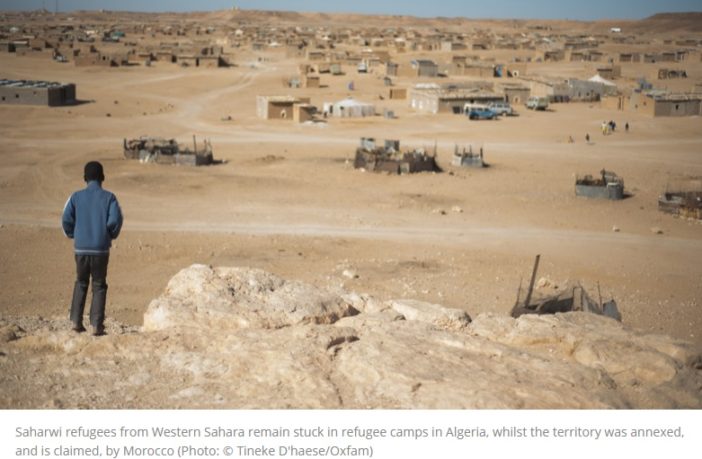The European Commission last week appeared to have changed its policy on the disputed territory of Western Sahara – only to immediately perform a U-turn.
The Western Sahara is a territory around the size of the UK, occupied by Morocco, and considered by the United Nations as a “non-self-governing territory”.
In a written response to Heidi Hautala, a Green MEP from Finland, the commission said products exported to the EU from the territory must be labelled as “Western Sahara.”
That admission would suggest the Western Sahara is a distinct territory from the rest of Morocco, signalling an about face from a European Commission that recently cut a controversial trade deal with Rabat.
“This is big news, and clearly must have sent some shockwaves in Rabat and among those supportive of Morocco’s (illegal) occupation of Western Sahara, and of a policy of tacit recognition by the EU,” wrote Hautala in her blog.
European Commissioner for Agriculture Janusz Wojciechowski had written the reply.
But around 24 hours after initial publication, Wojciechowski’s response was pulled from the European Parliament’s website.
Asked why, the EU’s foreign policy spokesperson told this website it had been a “misunderstanding”. He said a clarification would be issued, noting that its position on the Western Sahara had in fact not changed at all.
PRESENTED BY NORDIC COUNCIL OF MINISTERS
This clarification would go through the channels as written replies to the European Parliament, he said. As of writing, it is still not posted online.
Hautala, for her part, has described the commission’s manoeuvres as a bizarre chain of events.
“This is really unprecedented, particularly for an official reply to the parliament from the highest level of the commission,” she said, on her blog.
The European Court of Justice (ECJ) has in the past dismissed Morocco’s claim to the Western Sahara. It had also previously scrapped an EU trade deal with Morocco because products were being sourced from the disputed territory.
But the commission negotiated a new agricultural pact to include the Western Sahara anyway – amid claims it had obtained the consent of the local population and civil society.
Target of intense lobbying, which eventually led to the resignation of the lead MEP on the file because of conflicts of interest, the EU-Morocco deal passed anyway last year.







